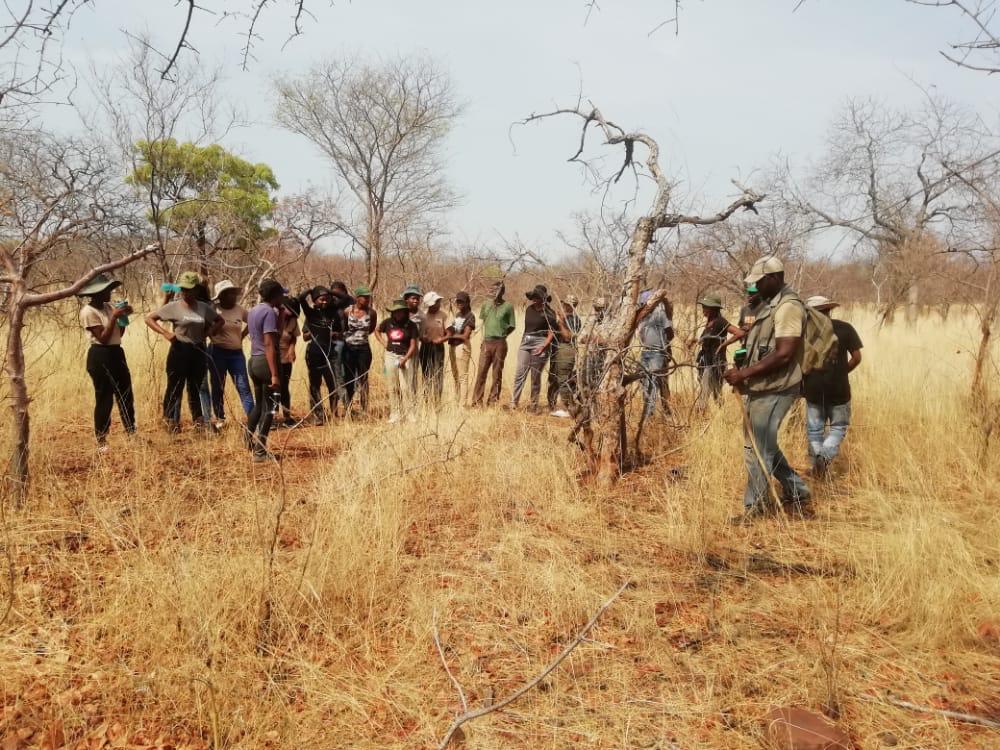Young Zimbabweans volunteer to learn anti-poaching
A local tour operator and safari hunter trains nature-loving youth anti-poaching and bush skills

Your support helps us to tell the story
From reproductive rights to climate change to Big Tech, The Independent is on the ground when the story is developing. Whether it's investigating the financials of Elon Musk's pro-Trump PAC or producing our latest documentary, 'The A Word', which shines a light on the American women fighting for reproductive rights, we know how important it is to parse out the facts from the messaging.
At such a critical moment in US history, we need reporters on the ground. Your donation allows us to keep sending journalists to speak to both sides of the story.
The Independent is trusted by Americans across the entire political spectrum. And unlike many other quality news outlets, we choose not to lock Americans out of our reporting and analysis with paywalls. We believe quality journalism should be available to everyone, paid for by those who can afford it.
Your support makes all the difference.By Lulu Brenda Harris for CITE
Young Zimbabweans have been taking part in a 14-day voluntary anti-poaching programme in the northwestern Hwange region, playing their part in addressing the scourge of illegal animal hunting in the district.
Created in 2020, the anti-poaching patrol programme has so far accepted 14 intakes, training volunteers on navigating the wild, while tracking both animals and poachers.
The patrol programme is the brainchild of Wisdom Bushe Neshav, a local tour operator and safari hunting business owner in Lobangwe, Matesti area.
Neshavi said the objective was to expose communities, especially the young, to the importance of nurturing wildlife.
“We should stop seeing animals as a source of cheap meat but learn to appreciate them,” he said in an interview with CITE.
“This is why I run an Okatoie 14-day programme, a voluntary anti-poaching patrol programme, to try to curb poaching happening around the farmland we run.”
Most of the volunteers are the youth, who Neshavi describes as “the future leaders of tomorrow.”
“We have done 14 intakes and the participants are nature and bundu (bush) lovers who appreciate conservation,” he said.
“Some volunteers are aspiring tour guides or professional hunters who actually have licences but lack the practical experience.”
With 18 years of experience running his safari business, Neshavi said they also used the programme to share valuable information about the wild.
“We teach the participants how to identify animals and track them. We share information on the different types of trees, how to do navigation using natural aids and technology. We show the participants how to do bush camping using tents or without resources, and how to find water and food in the field when lost and hungry. Importantly, we teach them how to track poacher spoors,” he said.
“This programme has been very helpful and our participants are embracing it very well.”
With almost 50,000 hectares of farmland between A1 and the A2 resettlement farms, Neshavi, also manager of Farm 52, said his hunting safari business was surrounded by vast land, which poachers took advantage of.
He noted that unlike poachers who killed animals indiscriminately, his safari business valued wildlife, as some of the hunting proceeds went to the community.
“Give us a Kudu, we sell it to a hunting client who will pay US$800 (£630) to US$1,000 (£790) while a poacher will sell the meat for $20 (£15). What’s the worth of USS$1000 in the pocket of a community and US$20 in the pocket of an individual? If you weigh the two, you see that poaching is not doing us any good but actually is harming us,” Neshavi said.
“So, with this anti-poaching programme we are saying, ‘let us stop poaching but embrace the wildlife.’ These are natural resources and we need to nurture them for future generations to benefit. There’s nothing more painful than being asked to contribute so much to repair a school damaged by floods or winds than just taking out money from the wildlife account for your renovations.”
Poachers took advantage of the Covid-19 induced lockdown to kill more animals, as the tourism sector including farmers and villagers stopped taking mitigatory measures to protect wildlife, claimed Neshavi.
So far, the volunteers have removed over a thousand wire snares since they started at the end of July 2020.
One of the programme aids, Bongani ‘Bongo’ Nyoni, admitted to be a former poacher who was “ignorant about sustainability but overtime understood the importance of nurturing wildlife.”
Nyoni, who boasted to be a ‘very’ fast runner, helps plan the physical part of the programme, noting that volunteers move all over the place and spend most of their time walking.
“Usually, we try to scout the whole 50,000 hectares and we aim to do that in 14 days. Walking is not easy but we try what we can. We have areas or red zones that we have identified as hotspots so we try to cover those as much as possible,” he said.
Despite the heavy demands of the programme, Neshavi said the volunteers self-funded themselves.
““Everyone contributes towards the meals and logistics but at the end of the day, the money is not enough so we end up getting into our own pockets to supplement. It’s also not easy but for the love of wildlife it has to be done,” he summed up.
This article is reproduced here as part of the African Conservation Journalism Programme, funded in Angola, Botswana, Mozambique, and Zimbabwe by USAID’s VukaNow: Activity. Implemented by the international conservation organisation Space for Giants, it aims to expand the reach of conservation and environmental journalism in Africa, and bring more African voices into the international conservation debate. Read the original story here:
Join our commenting forum
Join thought-provoking conversations, follow other Independent readers and see their replies
Comments